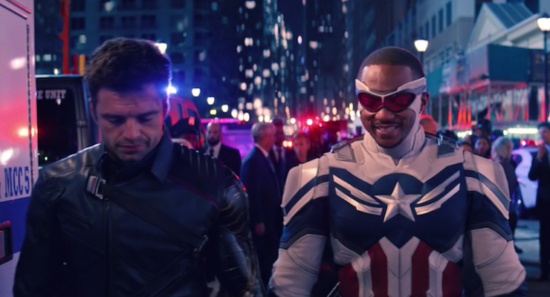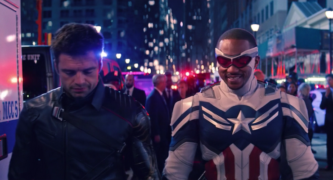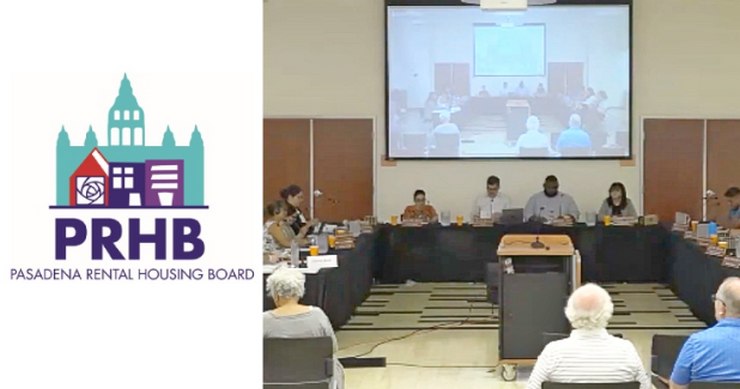
***WARNING: SPOILERS FOR The Falcon and the Winter Soldier Series Ahead!
I want to start by saying I’m majorly indulging myself with this month’s column. From the first Spider-Man franchise to the MCU’s debut with Iron Man, growing up with Marvel was like having a good friend that came to visit every year, bringing with it excellent stories stacked with killer fight scenes, humor, and top tier characters. So, when Chris Evans’ Steve Rogers first graced the silver screen in 2011, I immediately fell in love with him and Captain America became my absolute favorite Marvel hero. And no, it’s not (just) for the reason you’re thinking.
About a year or two ago, my therapist asked me who I look up to. She said it could be anyone I felt represented the values I hold dear and lived a life I admired. It’s slightly embarrassing to say that after thinking of my mother, I thought almost exclusively of fictional characters. After I gushed about Hermione Granger, I sheepishly noted that there was someone else. Yeah, you guessed it: Captain America.
Now, I haven’t read the comics (to be honest, with so much content over the decades, the idea of jumping into the comics now feels pretty daunting). That said, my main experience with Cap/Steve Rogers has been through the MCU, and the MCU’s portrayal is what endeared him to me so strongly. So, when she asked me why I look up to Captain America I honestly got a little choked up in my explanation. To save us all time from my emotional rambling, it came down to this: Steve Rogers is a character who was kind and good and self-sacrificing, and who only wanted to do what was right. He didn’t like bullies, he didn’t want to hurt anyone; he just wanted to defend those he cared for and save who he could save. Despite the can of worms it was/is representing America as a blond-haired, blue-eyed avenging force of righteous goodness, what I especially love about Steve Rogers’ Captain America is that he didn’t care about being Captain America the symbol. He cared about being a good person and he was bent on living that out even if it cost him his mantle, his notoriety, and the iconic shield. I mean, when Civil War went down in 2016, it goes without saying I was #TeamCap all the way because I trust Steve’s moral compass so much (though Tony for sure made some points).
Now, I know there’s a lot of nuance to who Steve Rogers is as a character. Some have called him chaotic good at best and a defiant rogue at worst. There’s even more nuance to who and what Captain America is when you consider the legacy of America itself. Sure, he started out as a hero penned by our beloved Marvelites Jack Kirby and Joe Simon to up morale as the U.S. fought Nazis in WWII, but as Disney+’s latest show The Falcon and the Winter Soldier bravely explored, Captain America, his shield, and the governmental representation of who and what he was is pretty…complicated.
But I’m not here to talk about that, necessarily. The foundational point I’m trying to make is that I dearly love Captain America.
So, when The Falcon and the Winter Soldier was announced, I—and please pardon my french—absolutely lost my shit. Following Endgame and the passing of the shield to Sam Wilson (Anthony Mackie), I was ready and geared up to see another beloved character become my most-beloved superhero—and all that entailed. Suffice it to say, TFATWS did not disappoint. Since episode one, I knew I’d be writing about it. Week after week, I’ve been gathering my thoughts (and my tears) to really dig into what this show means to me, and how beautifully and honestly it portrays the Black experience in America. What’s been most striking and satisfying, though, is the way the show portrays Black people and culture: not just our pain and our struggle, but our history and our joy.
The first thing I really noticed was just how many Black people were actively on screen. From the introduction of Sam’s sister, Sarah (Adepero Udoye), and her sons, to Rhodey’s (Don Cheadle) quick cameo, to John Walker’s (Wyatt Russel) wife (Gabrielle Byndloss) and Lemar (Clé Bennett), to Karli Morgenthau (Erin Kellyman), to, of course, the fantastic Dora Milaje (Florence Kasumba, Janeshia Adams-Ginyard, and Zola Williams), Black characters fill out the cast in important roles and not as background players. The backdrop of this Marvel story was refreshingly diverse in that I’ve never really seen that many Black people on screen at once in both prominent and background roles unless I’m watching a “Black” show or movie like The Fresh Prince or Black Panther.
Also against this backdrop were many cultural winks. In episode two when John Walker has his formal introduction, it wasn’t lost on me that the band at his old high school was almost entirely made up of Black students serving that jazzy rendition of “Star Spangled Man” (that is honestly a bop) that’s clearly a nod to the steppers and marching bands of HBCUs. When we spent time with Sam and his family in Louisiana, I felt a special kinship because my family is also from Louisiana. Sarah reminds me of one of my cousins, when Sam tells her “You know I don’t mess with these white people,” I knew exactly what he meant because I’ve heard older family members say that exact same line. When we got our first look at their family boat and the family photos plastered inside, they looked so similar to pictures I’ve seen of my grandparents, of my parents when they were kids—of myself.
The world-building is impeccable. It’s a side of Black life most viewers of Marvel content have probably never seen before. And then it goes deeper. At the start of episode one we see Sam donate the shield to the Smithsonian and the senator tell him he’s “doing the right thing.” Fast-forward to the end of the hour when they trot out the “new Cap,” and Anthony Mackie’s expression says so many things at once. It’s not just, “I gave up the shield…what have I done?” It’s the clear understanding, impact, and pain in Sam realizing the government still wants a Captain America, just not a Black one.
Enter Bucky Barnes (Sebastian Stan) and another layer is added: he’s hurt that Sam “gave up” the shield because Steve chose him, and in his eyes, Sam just threw it away. But neither Bucky nor Steve understand the gravity or the implications of a Black man holding the shield and the stars and stripes. “I mean, how could we?” Bucky says near the end of episode five, and he’s right. I both loved and pitied him in that scene because it summed up the central conflict so perfectly: Steve and Bucky only saw Sam as a good man, (like Dr. Erskine, played by Stanley Tucci, emphasized to Steve in Captain America: The First Avenger), one worthy to take up the mantle because of his good heart. They didn’t see him as a Black man because to them, he’s just Sam. This is beautiful, especially considering they’re two guys from the 40s who wouldn’t have had such a viewpoint modeled around them all that much, but it’s also erasure. They’ve never had to think of the implications or intricalities of Sam’s life and reality as a Black man, so they didn’t. And because they didn’t, they missed a lot. Sam says it best in episode two while he and Buck are squished together in their shared therapy session: “Maybe this is something you and Steve will never understand, but I did what I thought was right.” I might add that he did what he thought was safest, too, and I don’t blame him.
There is so much in that line that Bucky doesn’t feel the brunt of until three episodes, a lot of fighting, and some major bombshells later. Of course, this brings me to Isaiah Bradley (Carl Lumbly). Every time this character was on screen, I was crying or trying to swallow an enormous lump. Carl Lumbly’s expressive eyes spoke of a very real pain that was more than just his character’s story. The Tuskegee experiments, segregation, the lasting trauma of slavery and being seen as animal (and later 3/5s of a person) are all wrapped in this aging super soldier who’s been deeply scarred and abused by the same system that wants us to believe Steve Roger’s legacy is an accurate reflection of America.
“You’re either bitter or you’re blind,” Isaiah tells Sam in episode five—and I think all POC can understand that dichotomy.
In episode four, a contrast is made that isn’t really appreciated until later. Villain, dancing queen, and fashion icon Baron Helmut Zemo (Daniel Brühl) notes that “there has never been another Steve Rogers,” and while his statement is true, the show makes it increasingly clear that there is no other Sam Wilson, either. Despite his pain and his trauma, the issues he’s facing globally and at home, he is full of so much grace. He’s patient, he’s kind, he’s empathetic, and he genuinely wants to help. Like Steve, his altruism is admirable and inspiring, but when you remember that Sam is a Black man who’s lived under a racist, unbalanced system his entire life, who’s seen fresh horrors because of the fight with the Flag-Smashers, his grace is that much more profound. At times a little heavy-handed, the show portrays Sam’s grace through a number of moments: his ease and patience when he breaks down the unnecessary and incorrect addition of “Black” to his “Falcon” moniker, the cops racially profiling him immediately after he and Bucky leave Isaiah’s home, Zemo’s sweet but pretty misplaced summation of Trouble Man capturing the African American experience (which he can really know nothing about), and Isaiah’s pain-fueled jab that no “self-respecting Black man” would ever become Captain America. As we listen to Sam’s stunning speech at the end of the finale, everyone from the audience to John Walker sees why Steve chose Sam to carry the shield and why he’s the right (and only) successor to the mantle: not because he’s a perfect super soldier with powers, but because, like Steve, he wants to do what is good and right. He wants to love people and meet them where they are. He wants to save who he can save, no matter what side they’re on. Through it all he shows grace, patience, determination, and a deep understanding of himself and others. To put it simply, he’s just a really good man.
To see a Black character from Louisiana who cares for his Black family, who hangs out on the bayou with his Black friends, who tries his hardest to leave the lives of everyone he meets better than how he found them, is something really special. To see that Black character become my favorite superhero and still hold all the things that made him my favorite and honestly more, is indescribable.
By taking the time to explore Sam’s transition from the Falcon to Captain America, it feels like the camera lens has been turned on us, and we are beautiful. Given that Marvel has such a massive platform, the fact that they decided to tell this story to the world and to really flesh it out, brings many other true stories about Blackness and history, goodness and trauma and joy, out of the dark.
So, yeah. Cap is Black and I couldn’t be happier. To quote Bucky in First Avenger, let’s hear it for Captain America!
Final Thoughts:
- Bucky flirting with Sarah filled me with so much joy. Not only was it super cute and sweet considering his character arc, but growing up, guys who look like Bucky did not openly like Black girls or even find them attractive, especially not on TV. Anyone else hear, “I just don’t like Black girls” and “Black girls just aren’t pretty” constantly in high school? Bucky seeing Sarah made me feel beautiful.
- That final scene made me smile so big: the crayfish, the corn, the pie, the party! Bucky is literally the white guy invited to the cookout and I’m so here for it. But really, seeing him be effortlessly accepted into Sam’s family and world was so heartwarming. The power of Black community!
- Lemar was a beautiful character and I’m sad we don’t get to see more of him. When John Walker asked, “You don’t think Lemar’s life mattered?” it hit me pretty hard. Imagine if we just asked that question point blank: You don’t think Breonna Taylor’s life mattered? You don’t think Amhaud Arbery’s life mattered? It’s a yes or no question. What would the “all lives matter” crowd say?
- When the title card changed at the end of the finale to “Captain America and the Winter Soldier” I just cried and cried.
- I know I didn’t say much about John Walker or Karli here, but know I could write full on research papers about them.
- The song played at the end of the finale, “On and On” by Curtis Harding was such a wonderful fit. Please check out his whole album.
- Finally, I’m so grateful for Marvel. It’s such a joy to grow with these stories and characters and see them and the world expand. Special thanks to Anthony Mackie and Sebastian Stan, both of whom I have hopeless crushes on. If either of you see this, please do say hey!



















One thought on “It Matters | Kathryn H. Ross: Cap is Black”
Kathryn – I love your article, and we loved the Falcon and the Winter Soldier for all the reasons you state. Thank you.